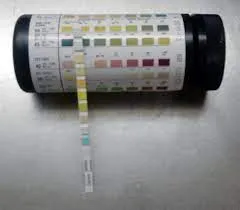Dec . 19, 2024 14:45 Back to list
Understanding H Pylori Infection and Diagnostic Testing Methods
Understanding the H. Pylori Bacteria Test A Comprehensive Overview
When it comes to gastrointestinal health, one of the most discussed pathogens is Helicobacter pylori, commonly known as H. pylori. This spiral-shaped bacterium colonizes the stomach lining and is known to be a significant contributor to various gastrointestinal disorders, including chronic gastritis, peptic ulcers, and even stomach cancer. As awareness of H. pylori’s impact on health has grown, so too has the importance of testing to identify its presence. This article delves into what the H. pylori bacteria test entails, why it is essential, and the different testing methods available.
What is H. Pylori?
Helicobacter pylori is a gram-negative bacterium that is primarily transmitted through contaminated food and water or saliva. It is estimated that nearly half of the world's population is infected with this bacterium, though many may remain asymptomatic. When symptoms do manifest, they can include abdominal pain, bloating, nausea, and frequent burping, which can significantly affect one’s quality of life. Therefore, timely testing and diagnosis are crucial for effective management.
Why Testing for H
. Pylori is ImportantTesting for H. pylori is vital for several reasons. First and foremost, proper identification of the bacterium can lead to effective treatment options, typically involving a combination of antibiotics and acid-reducing medications. This dual approach not only eradicates the infection but also promotes healing of the mucosal lining of the stomach.
Moreover, patients with existing gastrointestinal symptoms, such as severe dyspepsia or unexplained abdominal pain, may benefit from H. pylori testing to ascertain whether the infection is the root cause. Additionally, for individuals with a history of ulcers or stomach cancer in their family, testing can be a proactive measure to safeguard their health.
Methods of Testing for H. Pylori
h pylori bacteria test

There are several methods to test for H. pylori, each with its advantages and limitations. The choice of test often depends on the patient's symptoms, history, and the availability of testing options.
1. Urea Breath Test (UBT) This non-invasive test involves the patient ingesting a substance containing urea labeled with a carbon isotope. If H. pylori is present, the bacterium will convert the urea into carbon dioxide, which is then detected in the patient's breath. The UBT is highly accurate and commonly used due to its ease of administration and rapid results.
2. Blood Test A serological test can detect antibodies against H. pylori in a patient's blood. While this method is simple and quick, it may not distinguish between a current and a past infection, which can lead to false-positive results.
3. Stool Antigen Test This test detects H. pylori antigens present in a stool sample. It is a reliable method for diagnosing active infections and is often used to check for the presence of the bacteria after treatment.
4. Endoscopy with Biopsy In more severe cases or when other testing methods are inconclusive, an endoscopy may be performed. A thin, flexible tube is inserted through the mouth and into the stomach, allowing doctors to visually inspect the stomach lining and obtain biopsies for laboratory analysis. This method provides definitive results but is more invasive and typically reserved for more complicated cases.
Conclusion
The H. pylori bacteria test plays a pivotal role in diagnosing and managing gastrointestinal health issues. With various testing methods available, healthcare providers can tailor the approach based on individual patient needs. By understanding the importance of H. pylori testing, individuals can take proactive steps towards their digestive health, ensuring prompt treatment and prevention of potential complications. If you experience gastrointestinal symptoms, it’s essential to consult with a healthcare professional who can recommend appropriate testing and treatment options. Your stomach health is pivotal not only for overall well-being but also for maintaining a high quality of life.
-
Reliable Early Pregnancy Test Kit Supplier - Multi Plastic Cassette Options
NewsJul.30,2025
-
Transferrin Rapid Test Cassette – Reliable Tumor Marker Detection
NewsJul.29,2025
-
Accurate Follicle Stimulating Hormone Test Kit | Rapid Reliable Results
NewsJul.29,2025
-
High Accuracy LH Ovulation Test Kit - Digital Results & Wholesale Options
NewsJul.29,2025
-
HbsAg Blood Rapid Test Kit for Fast & Accurate Hepatitis B Detection
NewsJul.28,2025
-
Sterile Urine Cup for Safe & Easy Collection | High-Quality Specimen Cups
NewsJul.28,2025

